In economics, inflation is a sustained increase in the general price level of goods and services in an economy over a period of time. When the general price level rises, each unit of currency buys fewer goods and services. Consequently, inflation reflects a reduction in the purchasing power per unit of money – a loss of real value in the medium of exchange and unit of account within the economy. A chief measure of price inflation is the inflation rate, the annualized percentage change in a general price index over time. Inflation affects an economy in various ways, both positive and negative. Negative effects of inflation include an increase in the opportunity cost of holding money, uncertainty over future inflation which may discourage investment and savings, and if inflation were rapid enough, shortages of goods as consumers begin hoarding out of concern that prices will increase in the future. Positive effects include ensuring that central banks can adjust real interest rates, and encouraging investment in non-monetary capital projects. Economists generally believe that high rates of inflation and hyperinflation are caused by an excessive growth of the money supply.

- Fed's preferred inflation gauge ticked slightly higher in June

- Hunt: Summer of Democracy is Heightening Risk

- Summers: Republicans Creating Liz Truss-like Moment
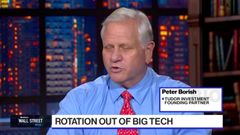
- Rotation Out of Megacap Tech

- The Power of Merchandise

- The Week in Numbers: have you tried rebooting?
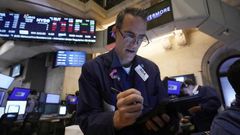
- What role will the US economy plan in the November election?
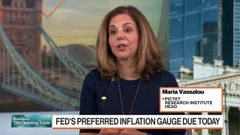
- Pictet Research's Vassalou on More Coordination Between Fiscal, Monitary Policy
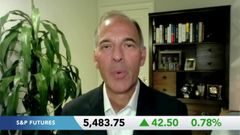
- PCE Consistent With September Rate Cut, Moody's Zandi Says

- Can Trump Win Without Biden?

- Inflation is down but the need for meals are necessary through Second Harvest

- Business Lookahead: Tech giant earnings, Fed meeting

- Carrots to Get Workers Back in Office

- Inflation data, Big Tech boost U.S. stocks

- Trump trade a bit 'confounding' -CIO
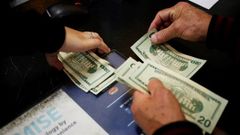
- US PCE Report Preview: What to Watch for

- US Core PCE Rises 0.2% in June, Personal Spending Remains Firm
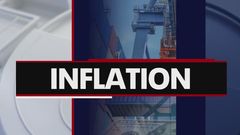
- Small inflation rise keeps interest rate cut likely

- U.S. prices continue to cool; Fed meeting in focus

- Inflation Eases as Fed Considers September Rate Cut







